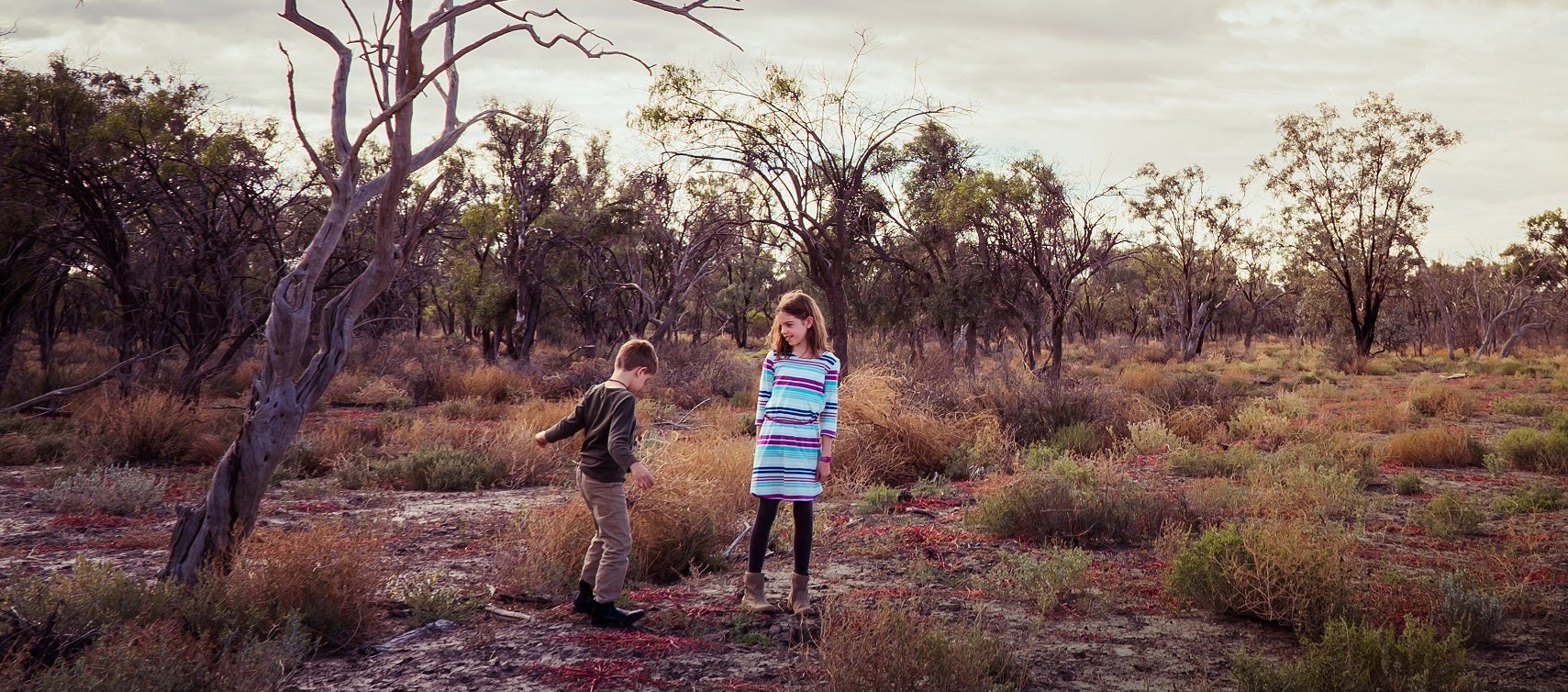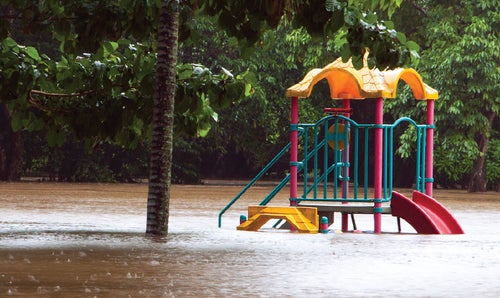Children are uniquely vulnerable to the impacts of disasters. They see, feel, and experience disasters differently, and with their whole lives ahead of them, they have the most to lose. In disasters, studies suggest children and young people are at greater risk of injury or illness. They are at increased risk of mental ill health, homelessness and domestic and family violence. And they can experience disruptions to their learning and development, which can have lasting impacts on their lives.
Despite this, children’s unique needs and vulnerabilities are often forgotten in disaster planning and response, resulting in inadequate support and protection before, during and after disasters.
Drawings by children impacted by the northern rivers floods
A child born in 2020 in Australia ...
will experience 4 times as many heatwaves, 3 times as many droughts and 1.5 times as many bushfires as those born in 1960.
Children and young people are more likely to experience disasters ...
if they are in regional or remote areas, from lower socio-economic backgrounds or living in First Nations communities.
Children who have experienced disasters ...
are 4.2 per cent less likely to finish year 12.
Putting children at the centre
The needs of children and young people should be taken into account in disaster preparedness, response and recovery. Some of the ways we can put children at the centre include:
1. Listening to children and young people
Children and young people have a lot to share about their lived experiences in disasters. By listening to their voices and stories, we can better understand their unique needs in emergencies.
Birdie’s Tree storybooks are an excellent resource to support and engage with children through storytelling. The use of storytelling and play can work to build emotional literacy and support children and young people’s agency and resilience.
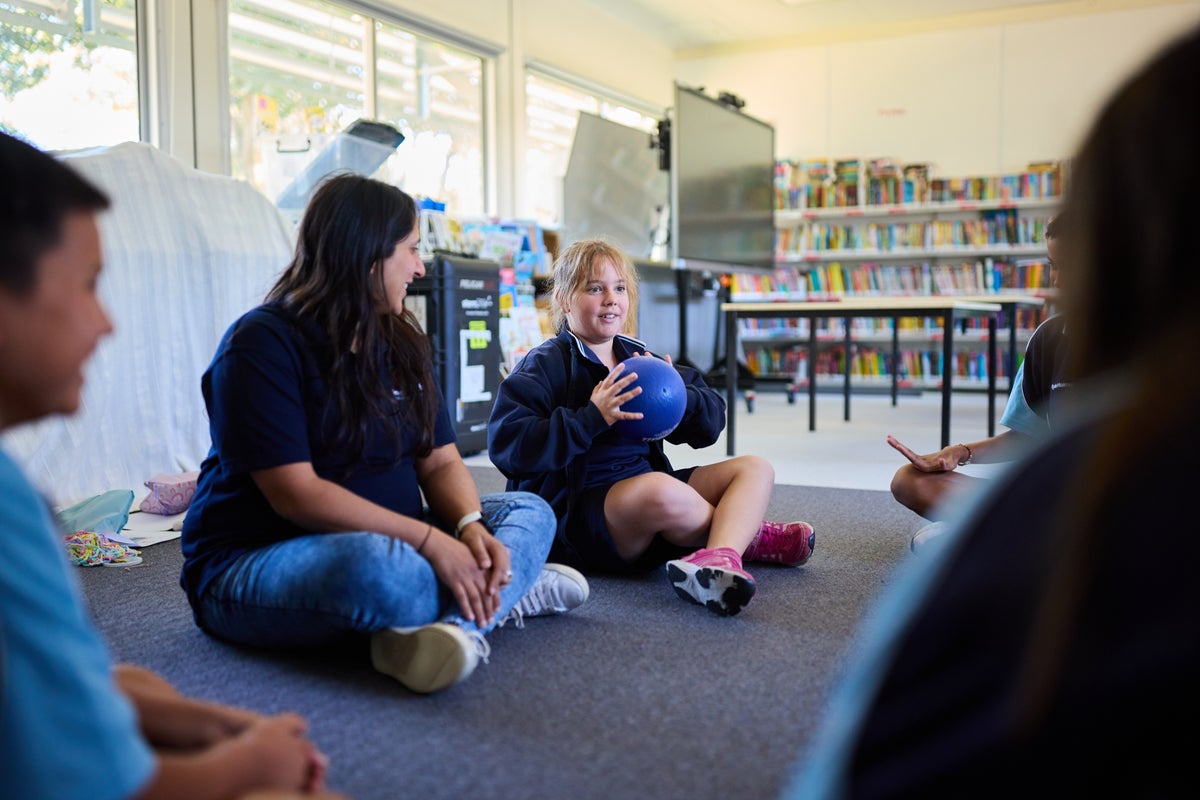
2. Policies, frameworks and programs
Disaster policies, frameworks and programs should take the unique needs of children and young people into account.
We call on the Federal Government to implement a consistent, national framework to support children and young people in the lead up and aftermath of disasters. This framework could be adapted for different hazards and operationalised at all levels of government.
3. Disaster funding
Disaster funding instruments should enable sustainable, child-sensitive resilience, response and recovery initiatives.
We recommend funding bodies embed the needs of child sensitivity criteria in their project and programmatic cycles, and provide greater funding opportunities for child-critical sectors like education, healthcare, social and emotional wellbeing, and housing.
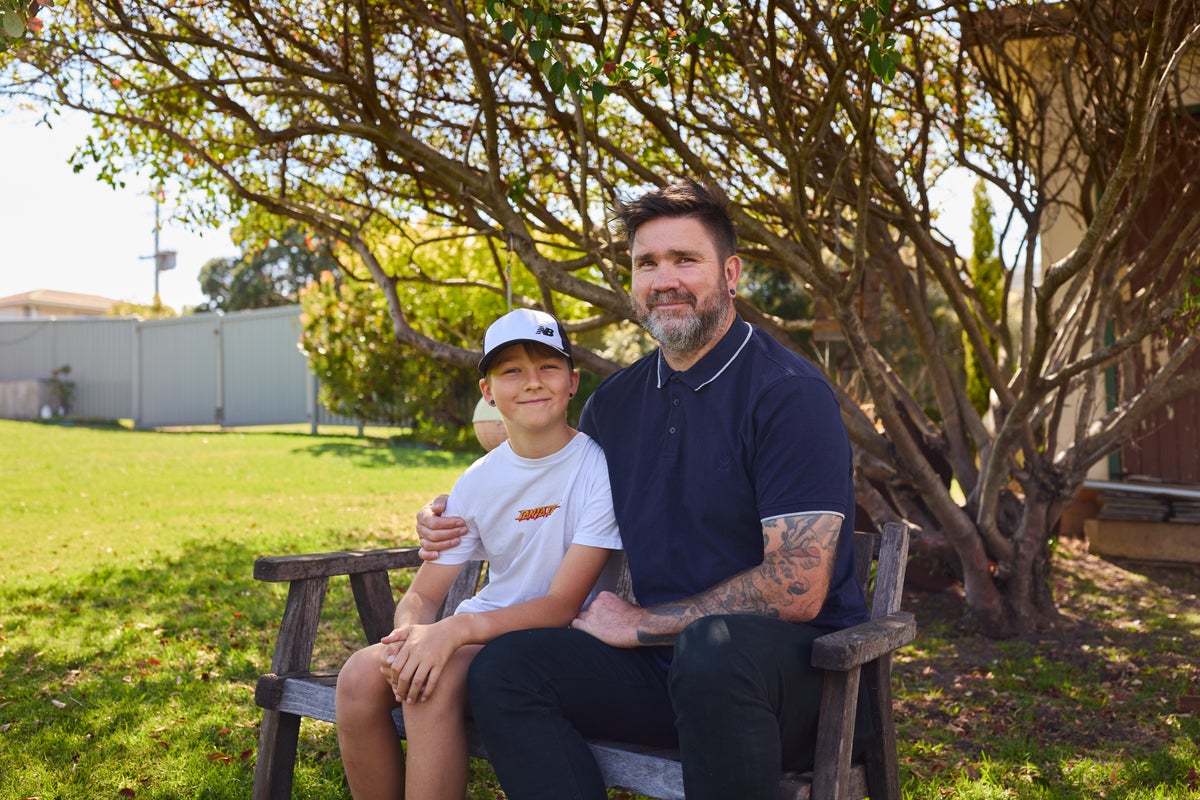
4. Disaster education
We must equip children to respond to more frequent and intense disasters. This includes teaching basic emergency preparedness and green skills, as well as emotional and psychosocial resilience-building.
The Australian Institute of Disaster Resilience has a fantastic range of lesson plans, activities and resources for educators, parents and caregivers of children and young people of all ages.
5. Social and emotional wellbeing services
The social and emotional wellbeing needs of children should not be forgotten in disaster planning, response and recovery. Experiencing a traumatic event like a flood, bushfire or drought can have a devastating long-term impact on a child’s wellbeing.
We recommend disaster frameworks and funding instruments prioritise the sustainable investment in social and emotional wellbeing services for children and communities. The Royal Far West Community Recovery Service is working to support the wellbeing and resilience of children impacted by disasters, aiming to prevent long-term adverse effects.
The Royal Far West Resilient Kids Toolkit provides simple and effective strategies for parents and caregivers, as well as activities for kids which help to strengthen mental health and build resilience. The Summer of Resilience webpage also includes some excellent links to resources that support children’s social and emotional wellbeing.
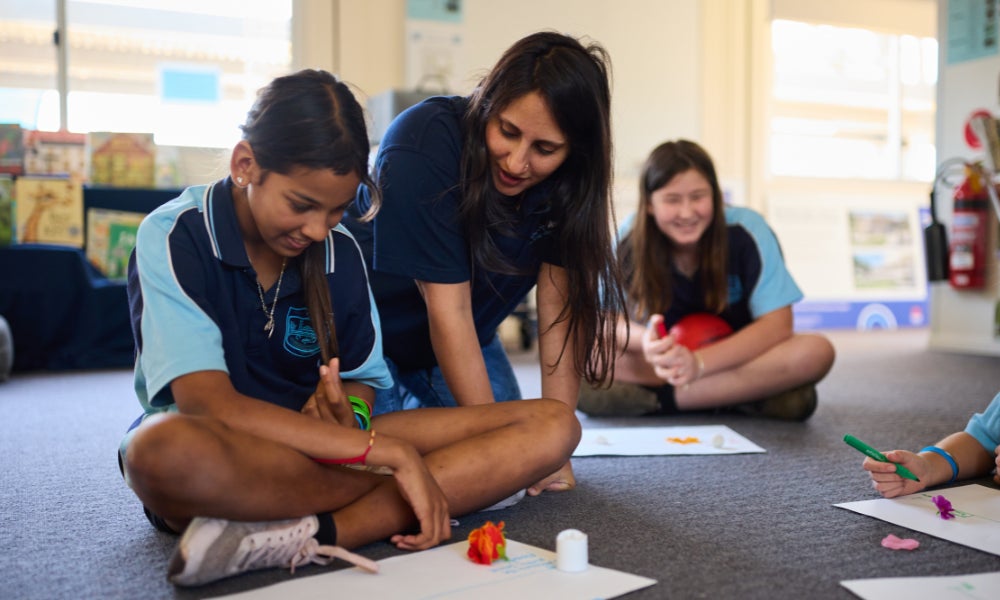
6. Empowering children and young people in disasters
Children and young people can have an active role in disaster preparedness, response and recovery.
When preparing for disasters, develop emergency plans as a whole family and encourage children to help with packing your household emergency kit. Get Ready Queensland have handy resources for parents and educators. After disasters, children can have a role to play in rebuilding and identifying the important community landmarks to preserve.
Needs Assessments
Since 2020, UNICEF Australia and Royal Far West have been working together to understand the unique impacts of disasters on children and young people through a series of Needs Assessments. These Needs Assessments shine a light on children’s experiences of disasters, and outline opportunities to better address their needs in disaster planning and response.
Other helpful resources
This report by Deloitte and UNICEF Australia quantifies the cost of disasters on children and young people across Australia.
Read the full reportThis panel discussion with Beyond Blue provides examples on how to include children’s voices in disasters.
Watch nowUNICEF Australia and Western Sydney University worked with and children and young people across Australia to develop Child-Centred Indicators for Climate Change.
Read nowThe free Resilient Kids Toolkit guide is filled with many easy-to-follow strategies for parents and activities for kids designed to help develop positive relationships, strengthen mental health and build resilience and self-awareness.
Download the toolkitAs we approach a new season of bushfire danger, Royal Far West will share some advice, activities, and strategies to help support children and their families during this time.
Read nowThis podcast speaks with students and education and mental health professionals to hear what they have learnt from their experiences of disasters and what they wished they knew before the disaster hit.
Listen nowThis statement by Australia’s Local Conference of Youth captures the voices of children and young people from around Australia and their perspectives on climate change.
Read the statementUNICEF Australia and Royal Far West teamed up on a short film about the impact of bushfires on country kids. This video was premiered at COP28 in Dubai.
Watch nowEmerging Minds have resources to support the workforce to put children’s rights at the centre.
Read now


